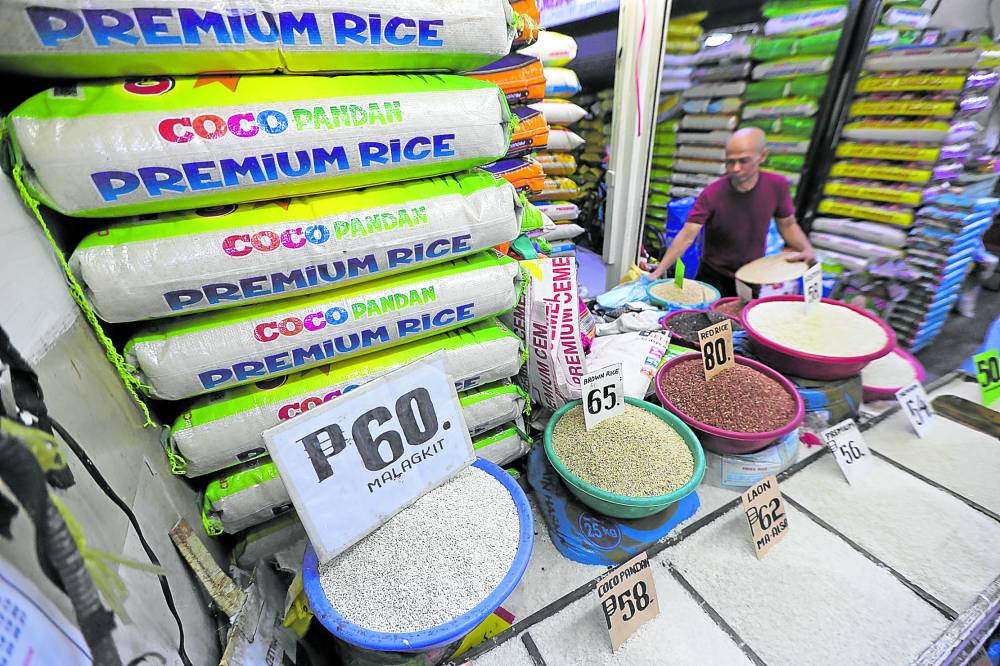
Rice vendor Eddie Pascual, 58, wait for his usual clients at his rice stall in Marikina Public Market on Monday, June 10, 2024. The NEDA board has agreed to cut tariff on rice to 15 percent from 35 percent to help bring down the price of rice to P29 a kilo. Pascual expressed his reservation that the move will lower the price of rice per kilo. INQUIRER / GRIG C. MONTEGRANDE
Filipino consumers will not immediately feel the impact of the government’s move to slash the tariff on imported rice to 15 percent from 35 percent, even if the volume will increase, according to BMI.
The Fitch Group unit said: “the reduction will not have a noticeable impact on domestic prices” as it will take time for the cheaper rice to circulate in the country.
READ: Marcos formalizes rice tariff cut via EO 62
BMI also pointed out that international rice prices are still elevated due to factors such as India’s rice export ban that have tightened the global rice market.
The research firm said the surge in the demand for imported rice might increase the pressure for global prices to go up.
It cited data from the United Nation’s Food and Agriculture Organization that showed that export quotations for Vietnam’s 25 percent and 5 percent broken rice hit $543 per ton and $568 per ton, respectively, in May this year, up by 18.6 percent and 17.1 percent, respectively, from a year ago.
BMI also mentioned the FAO’s All Rice Price Index, which reached 137.3 points, up by 7.4 percent from 127.8 points recorded last year. INQ